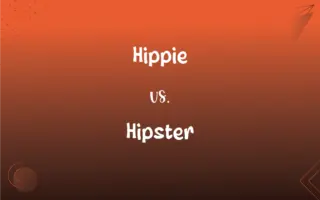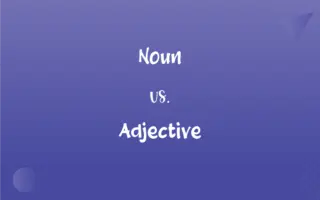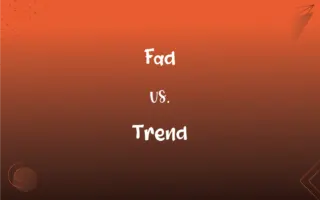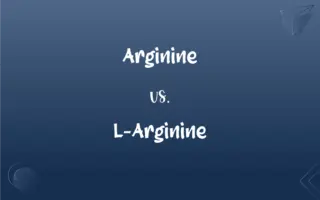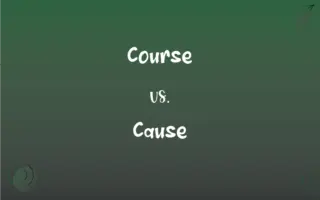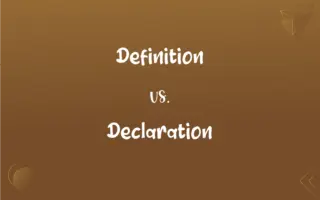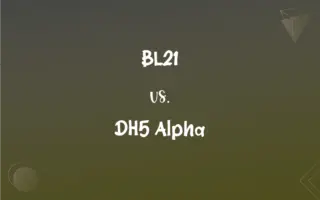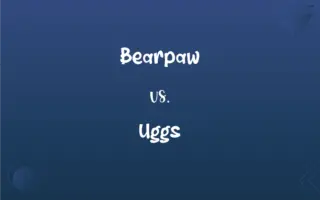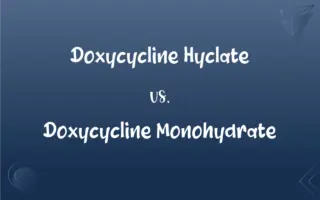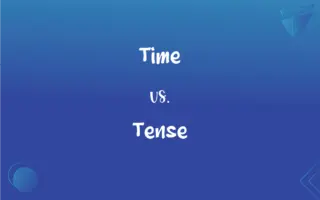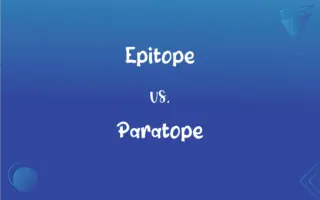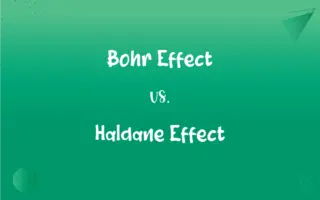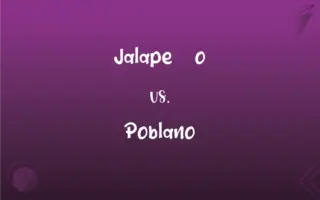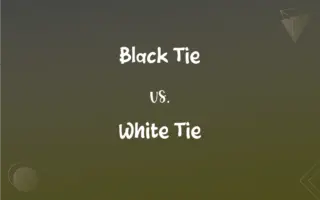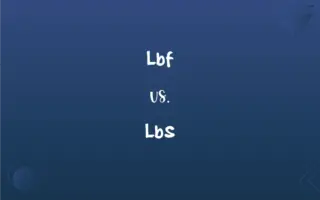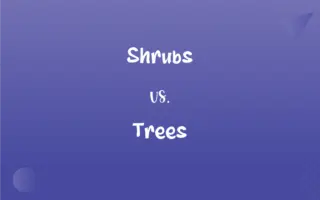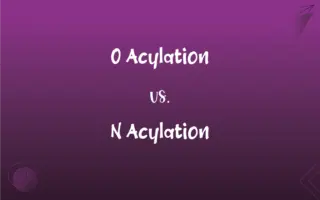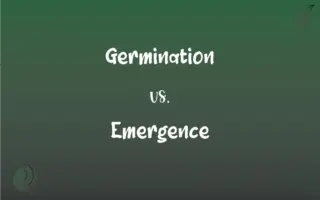Thin vs. Slim: What's the Difference?
Edited by Aimie Carlson || By Harlon Moss || Updated on October 6, 2023
Thin describes a narrow thickness or a lack of bulk; slim often connotes an attractive slender figure or slight dimensions.
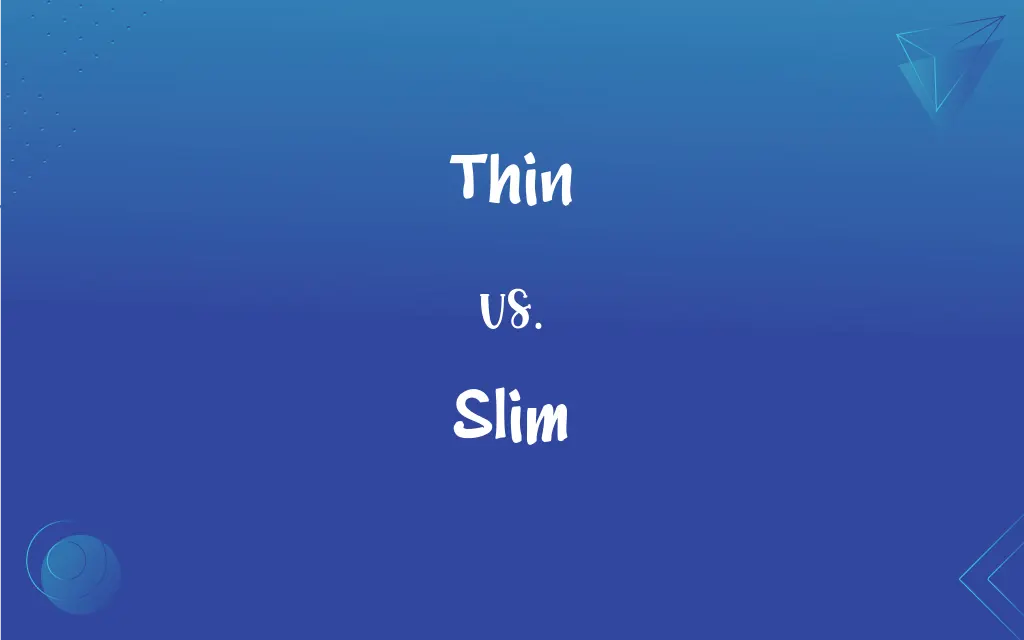
Key Differences
Thin and slim are adjectives that frequently overlap in usage, yet they possess distinct connotations. While thin can be neutral or even negative, suggesting a lack of substance or health, slim usually implies a graceful or deliberate lack of excess bulk.
When describing physical attributes, thin can relate to various aspects like hair, paper, or cloth, indicating minimal thickness. Slim, on the other hand, typically pertains to bodies or figures, often suggesting an elegance or fitness.
In certain contexts, thin might imply a deficiency or inadequacy. For instance, "thin evidence" suggests a lack of convincing proof. Slim, conversely, rarely carries such negative undertones. Instead, it might indicate small chances, as in "slim odds."
Furthermore, thin can describe sparse distributions, such as a "thin crowd." Slim doesn't typically convey this meaning. Slim can also be a compliment, indicating a trim and fit physique, while thin might suggest someone is underweight or frail.
In summary, while thin and slim can sometimes be used interchangeably when discussing dimensions or proportions, they often carry different nuances, with thin being broader in its application and slim frequently carrying positive connotations regarding appearance.
ADVERTISEMENT
Comparison Chart
General Meaning
Lacking thickness or bulk
Gracefully slender
Usage
Can be used for objects and people
Often used for people or figures
Connotation
Neutral or negative
Often positive
Scope
Broader in application
More specific
Contextual Example
"Thin ice" (unsafe ice due to lack of thickness)
"Slim chances" (small likelihood)
ADVERTISEMENT
Thin and Slim Definitions
Thin
Lacking bulk or density.
The pages of the book were so thin, they felt delicate.
Slim
Gracefully thin or slender.
She had a slim figure from regular exercise.
Thin
Without substance or strength.
His explanation was thin and unconvincing.
Slim
Small in quantity or amount.
The detective had only a slim lead in the case.
Thin
Diluted or watered down.
She poured the thin soup into the bowl.
Slim
Trim in build or structure.
The new phone model is slimmer and more compact.
Thin
Sparse or scanty.
There was a thin layer of snow on the ground.
Slim
Little chance or likelihood.
There's a slim chance of rain tomorrow.
Thin
Frail or lean due to illness or hunger.
After weeks of being stranded, they were thin and weak.
Slim
Reducing or trying to reduce in size.
He's on a slimming diet to lose weight.
Thin
Relatively small in extent from one surface to the opposite, usually in the smallest solid dimension
A thin book.
Slim
Small in girth or thickness in proportion to height or length; slender.
Thin
Not great in diameter or cross section; fine
Thin wire.
Slim
Small in quantity or amount; meager
Slim chances of success.
Thin
Having little bodily flesh or fat; lean or slender.
Slim
To become or make slim.
FAQs
Is calling someone slim a compliment?
Typically, yes. Slim often has a positive implication about one's figure.
What does "spread thin" mean?
It means being overextended or trying to manage too many things at once.
Is "thin on the ground" about sparse quantity?
Yes, it indicates something is rare or in limited quantity.
Can thin indicate weakness?
Yes, such as "a thin voice" implying a weak or feeble voice.
Can you use "thin" and "slim" to describe inanimate objects, like a book or a device?
Yes. "Thin" can be used for objects like paper or fabric, while "slim" often describes sleek objects like devices.
Can objects be described as slim?
Yes, especially if referring to their sleek or slender design.
Does slim always mean attractive?
Not always, but it often carries a positive connotation.
Is “slim down” a phrase used to describe reducing size or weight?
Yes, "slim down" typically means to lose weight or to make something smaller.
Which term, thin or slim, is broader in application?
Thin has a broader application than slim.
Are there negative connotations to thin?
Yes, it can suggest frailty, lack of substance, or inadequacy.
Can "slim" imply something negative, like "slim chances?"
Yes, "slim chances" implies a low probability of something happening.
When describing the physical body, does "thin" imply health?
Not necessarily, "thin" doesn’t always correlate with health, and it may imply being underweight.
Is "slim fit" a positive description for clothing?
Generally, yes. "Slim fit" suggests the clothing is designed to contour a slender figure.
Does "thin" always denote a negative or undesired state?
No, "thin" can be neutral or negative depending on the context.
When discussing body size, can "slim" be used in a neutral or medical context?
Rarely. "Slim" generally carries positive or neutral connotations and is not commonly used in medical contexts.
Can slim be used for non-physical contexts?
Yes, such as "slim chances" meaning a small likelihood.
Can thin and slim be used interchangeably?
Sometimes, especially regarding dimensions, but they often have different connotations.
Can "thin" describe concepts and abstracts, like "a thin argument?"
Yes, "thin" can indicate a lack of substance or strength in abstract concepts.
Can "thin" refer to a situation, like "the patience is wearing thin?"
Yes, it implies that patience is running out or depleting.
Can "slim" be used to describe something sleek or minimalistic in design?
Yes, items like smartphones or laptops are often described as slim to denote a sleek design.
About Author
Written by
Harlon MossHarlon is a seasoned quality moderator and accomplished content writer for Difference Wiki. An alumnus of the prestigious University of California, he earned his degree in Computer Science. Leveraging his academic background, Harlon brings a meticulous and informed perspective to his work, ensuring content accuracy and excellence.
Edited by
Aimie CarlsonAimie Carlson, holding a master's degree in English literature, is a fervent English language enthusiast. She lends her writing talents to Difference Wiki, a prominent website that specializes in comparisons, offering readers insightful analyses that both captivate and inform.
